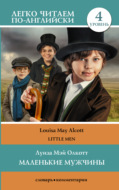Kitabı oku: «Sense and Sensibility / Чувство и чувствительность. Уровень 3», sayfa 3
Chapter XIII
Their excursion to Whitwell turned out very different from what Elinor had expected. She was prepared to be wet through, fatigued, and frightened; but the event was still more unfortunate, for they did not go at all.
By ten o’clock the whole party was assembled at the park, where they ready to breakfast. The morning was rather favourable, though it had rained all night.
While they were at breakfast the letters were brought in. Among the rest there was one for Colonel Brandon. He took it, looked at the direction, changed colour, and immediately left the room.
“What is the matter with Brandon?” said Sir John.
Nobody could tell.
“I hope he has had no bad news,” said Lady Middleton. “It must be something extraordinary that could make Colonel Brandon leave my breakfast table so suddenly.”
In about five minutes he returned.
“No bad news, Colonel, I hope;” said Mrs. Jennings, as soon as he entered the room.
“None at all, ma’am, I thank you.”
“Was it from Avignon? I hope it is not to say that your sister is worse.”
“No, ma’am. It came from town, and is merely a letter of business.”
“But why does it discompose you so much, if it is only a letter of business? Come, come, Colonel; so let us hear the truth of it.”
“My dear madam,” said Lady Middleton, “recollect what you are saying.”
“Well, then, I know who it is from, Colonel. And I hope she is well.”
“Whom do you mean, ma’am?” said he.
“Oh! you know who I mean.”
“I am particularly sorry, ma’am,” said he, addressing Lady Middleton, “that I receive this letter today, for it is on business which requires my immediate attendance in town.”
“In town!” cried Mrs. Jennings. “What will you do in town at this time of year?”
“I am very sorry,” he continued, “to leave you; as I fear my presence is necessary to gain your admittance at Whitwell.”
“But if you write a note to the housekeeper, Mr. Brandon,” said Marianne, eagerly, “will it not be sufficient?”
He shook his head.
“We must go,” said Sir John. “You cannot go to town till tomorrow, Brandon, that is all.”
“It is not in my power to delay my journey for one day!”
“Let us know what your business is,” said Mrs. Jennings, “and we’ll see whether it can be put off or not.”
Elinor then heard Willoughby say, in a low voice to Marianne,
“There are some people who cannot bear a party of pleasure. Brandon is one of them. He is afraid of catching cold I dare say, and invented this trick. The letter is of his own writing.”
“I have no doubt of it,” replied Marianne.
“Well, then, when will you come back again?”
“It is very uncertain.”
“Oh! he must come back,” cried Sir John. “If he is not here by the end of the week, I shall go after him.”
“So do, Sir John,” cried Mrs. Jennings, “and then perhaps you may find out what his business is. I wish you a good journey. But you must change your mind.”
“I assure you it is not in my power,” said the Colonel.
To Marianne, he merely bowed and said nothing. He wished Mrs. Jennings a good morning and left the room.
“I can guess what his business is, however,” said Mrs. Jennings exultingly.
“Can you, ma’am?” said almost everybody.
“Yes; it is about Miss Williams, I am sure.”
“And who is Miss Williams?” asked Marianne.
“What! do not you know who Miss Williams is? She is a relation of the Colonel’s, my dear; a very near relation.” Then, lowering her voice a little, she said to Elinor, “She is his natural daughter12.”
“Indeed!”
“Oh, yes; and I dare say the Colonel will leave her all his fortune.”
Chapter XIV
The sudden termination of Colonel Brandon’s visit filled the mind and raised the wonder of Mrs. Jennings for two or three days. She wondered what could be the reason of it.
“Something very melancholy must be the matter, I am sure,” said she. “I saw it in his face. Poor man! I am afraid his circumstances may be bad. I will give anything to know the truth. Perhaps it is about Miss Williams and, I dare say it is, because he looked so conscious when I mentioned her. May be she is ill in town. Or may be his sister is ill at Avignon. Who knows.”
So wondered, so talked Mrs. Jennings. Her opinion varied. Elinor, though she felt really interested in the welfare of Colonel Brandon, did not pay much attention. She was more interested in the extraordinary silence of her sister and Willoughby. As this silence continued, every day made it appear more strange. Why they did not openly acknowledge to her mother and herself, what their behaviour meant, Elinor could not imagine.
She can easily conceive that marriage will not take place tomorrow; for though Willoughby is independent, there is no reason to believe him rich.
Nothing could be more expressive of attachment to them all, than Willoughby’s behaviour. The cottage was considered and loved by him as his home; many hours were spent there.
One evening, about a week after Colonel Brandon left, Mrs. Dashwood mentioned her design of improving the cottage in the spring. He warmly opposed every alteration of the place.
“What!” he exclaimed – “Improve this dear cottage! No. Never! Not a stone must be added to its walls, not an inch to its size!”
“Do not be alarmed,” said Miss Dashwood, “nothing of the kind will be done. My mother will never have money enough to attempt it.”
“I am glad of it,” he cried. “May she always be poor, if she can employ her riches no better.”
“Thank you, Willoughby. But are you really so attached to this place?”
“I am,” said he. “To me it is faultless. I consider it as the only form of building in which happiness is attainable.”
“With dark narrow stairs and a kitchen that smokes, I suppose,” said Elinor.
“Yes,” cried he in the same eager tone, “with all and everything belonging to it. Under such a roof, I may perhaps be happy.”
Mrs. Dashwood looked with pleasure at Marianne.
“Mrs. Dashwood,” added he, “do you really want to spoil this house? You want to rob it of its simplicity by imaginary improvement! This dear parlour in which our acquaintance first began, and in which so many happy hours have been since spent by us together!”
Mrs. Dashwood assured him that no alteration of the kind would be attempted.
“You are a good woman,” he warmly replied. “Your promise makes me easy.”
“Shall we see you tomorrow to dinner?” said Mrs. Dashwood, when he was leaving them. “I do not ask you to come in the morning, for we must walk to the park, to visit Lady Middleton.”
He promised to come by four o’clock.
Chapter XV
Mrs. Dashwood’s visit to Lady Middleton took place the next day, and two of her daughters went with her. Marianne remained at home.
On their return from the park they found Willoughby’s curricle. When they entered the passage, Marianne came hastily out of the parlour, with her handkerchief at her eyes; and ran upstairs. Surprised and alarmed they proceeded directly into the room, where they found only Willoughby, who was leaning against the mantelpiece.
“Is anything the matter with her?” cried Mrs. Dashwood as she entered, “is she ill?”
“I hope not,” he replied, trying to look cheerful; and with a forced smile presently added, “It is I who may be ill – for I am now suffering under a very heavy disappointment!”
“Disappointment?”
“Yes. Mrs. Smith has sent me on business to London. I have just received my dispatches, and taken my farewell of Allenham. I am here now to take my farewell of you.”
“To London! – and are you going this morning?”
“Almost this moment.”
“This is very unfortunate. But Mrs. Smith’s business will not detain you from us long I hope.”
He coloured as he replied,
“You are very kind, but I have no idea of returning into Devonshire immediately. My visits to Mrs. Smith are never repeated within the year.”
“And is Mrs. Smith your only friend? Is Allenham the only house in the neighbourhood to which you will be welcome? Oh Willoughby, do you wait for an invitation here?”
He only replied,
“You are too good.”
Mrs. Dashwood looked at Elinor with surprise. Elinor felt equal amazement. For a few moments everyone was silent. Mrs. Dashwood first spoke,
“I have only to add, my dear Willoughby, that at Barton cottage you will always be welcome. I will not press you to return here immediately, because you only can judge.”
“My engagements at present,” replied Willoughby, confusedly, “are of such a nature – that – I dare not flatter myself – ”
He stopped. Mrs. Dashwood was too much astonished to speak, and another pause succeeded. This was broken by Willoughby, who said with a faint smile,
“It is folly to linger in this manner. I will not torment myself any longer by remaining among friends whose society it is impossible for me now to enjoy.”
He then hastily left the room. He stepped into his carriage, and in a minute it was out of sight.
Elinor’s uneasiness was equal to her mother’s. She thought of what had just passed with anxiety and distrust. Willoughby’s behaviour, his embarrassment, and, above all, his unwillingness to accept her mother’s invitation, greatly disturbed her. Maybe some unfortunate quarrel had taken place between him and her sister. But Marianne loved him much, and a quarrel seemed almost impossible.
In about half an hour her mother returned, her eyes were red.
“Our dear Willoughby is now some miles from Barton, Elinor,” said she, as she sat down to work.
“It is all very strange. So suddenly! Last night he was with us so happy, so cheerful, so affectionate. And now… Something very important happened. He did not speak, he did not behave like himself. You saw the difference as well as I. What can it be? Can they quarrel? Why didn’t he accept your invitation?”
“Elinor, I have explained everything to myself in the most satisfactory way. I am persuaded that Mrs. Smith suspects his regard for Marianne, disapproves of it. Perhaps because she has other views for him, This is what happened. He is aware that she disapproves the connection, he dares not therefore at present confess to her his engagement with Marianne, and he feels himself obliged to absent himself from Devonshire for a while. And now, Elinor, what have you to say?”
“Nothing, for you have anticipated my answer.”
“Oh, Elinor, how incomprehensible are your feelings! Do you suspect him of anything?”
“I can hardly tell. But suspicion of something unpleasant is the inevitable consequence of his behaviour. Willoughby can undoubtedly have very sufficient reasons for his conduct, and I hope that he has.”
“Do not blame him, however.”
“It may be proper to conceal their engagement (if they are engaged) from Mrs. Smith – and if that is the case, it is wise for Willoughby to leave Devonshire at the moment. But this is no excuse for their concealing it from us.”
“Concealing it from us! My dear child, do you accuse Willoughby and Marianne of concealment? This is strange indeed.”
“I want no proof of their affection,” said Elinor; “but of their engagement I do.”
“Actions speak plainly. Has not his behaviour to Marianne and to all of us, for at least the last fortnight, declared that he loved and considered her as his future wife? Have we not perfectly understood each other? My Elinor, is it possible to doubt their engagement? How could such a thought occur to you? Do you suppose him really indifferent to her?”
“No, I cannot think that. He must and does love her I am sure.”
“But with a strange kind of tenderness, if he can leave her with such indifference, such carelessness of the future, as you attribute to him.”
“You must remember, my dear mother, that I have never considered this matter as certain. I have had my doubts.”
“If you see them at the altar, you will suppose they are going to be married. Ungracious girl! But I require no such proof. You cannot doubt your sister’s wishes. It must be Willoughby therefore whom you suspect. But why? Is he not a man of honour and feeling? Can he be deceitful?”
“I hope not, I believe not,” cried Elinor. “I love Willoughby, sincerely love him; and suspicion of his integrity cannot be more painful to yourself than to me. It was involuntary, and I will not encourage it.”
“You speak very properly. Willoughby certainly does not deserve to be suspected. Though we have not known him long, he is no stranger in this part of the world. Who has ever spoken to his disadvantage?”
They were interrupted by the entrance of Margaret. They did not see Marianne till dinner time, when she entered the room and took her place at the table without a word. Her eyes were red and swollen. She avoided the looks of them all, she did not eat, and after some time, she burst into tears and left the room.
Chapter XVI
Marianne was awake the whole night, and she wept a lot. She got up with a headache, and was unable to talk.
When breakfast was over she walked out by herself, and wandered about the village of Allenham. Then she spent hours at the pianoforte alternately singing and crying. No letter from Willoughby came. Marianne’s mother was surprised, and Elinor again became uneasy. But Mrs. Dashwood found explanations whenever she wanted them,
“Remember, Elinor,” said she, “how very often Sir John fetches our letters himself from the post, and carries them to it. We have already agreed that secrecy may be necessary.”
“Why do you not ask Marianne at once,” said Elinor, “whether she is or she is not engaged to Willoughby?”
“I will not ask such a question. If they are not engaged, such an enquiry will inflict distress! At any rate it will be most ungenerous. I know Marianne’s heart: I know that she dearly loves me, and that is enough.”
It was several days before Willoughby’s name was mentioned before Marianne. Sir John and Mrs. Jennings, indeed, were not very nice; their witticisms added pain to many painful hours. One morning, Marianne joined her sisters in their usual walk, instead of wandering away by herself. Elinor and Marianne walked along the road through the valley, chiefly in silence. Beyond the entrance of the valley, they stopped to look around them, and examine a prospect which formed the distance of their view from the cottage.
Amongst the objects, they soon discovered a man on horseback riding towards them. In a few minutes Marianne rapturously exclaimed,
“It is he; it is indeed! I know it is!” and was hastening to meet him, when Elinor cried out,
“Indeed, Marianne, I think you are mistaken. It is not Willoughby. The person is not tall enough.”
“It is he,” cried Marianne, “I am sure he has. His coat, his horse. I know that!”
They walked and were soon within thirty yards of the gentleman. Marianne looked again, and welcomed Edward Ferrars.
He dismounted, and giving his horse to his servant, walked back with them to Barton.
He was welcomed by them all with great cordiality, but especially by Marianne, who showed more warmth than even Elinor herself. After a short silence which succeeded the first surprise and enquiries of meeting, Marianne asked Edward if he came directly from London. No, he had been in Devonshire a fortnight.
“A fortnight!” she repeated, surprised.
He looked rather distressed as he added, that he was staying with some friends near Plymouth.
Elinor talked of their present residence, its conveniences and so on. His coldness and reserve mortified her severely; she was vexed and half angry.
Chapter XVII
Mrs. Dashwood was surprised only for a moment. Edward’s arrival was, in her opinion, of all things the most natural.
“What are Mrs. Ferrars’s views for you at present, Edward?” said she, when dinner was over; “are you still going to be a great orator?”
“No. I hope my mother is now convinced that I have no talents for a public life!”
“But how will your fame be established? How will you become famous? You may find it a difficult matter.”
“I shall not attempt it. I have no wish to be distinguished; and have every reason to hope I never shall. Thank Heaven!”
“You have no ambition, I know. Your wishes are all moderate.”
“As moderate as those of the rest of the world, I believe. I wish as well as everybody else to be happy; but, like everybody else it must be in my own way. Greatness will not make me so.”
“Yes!” cried Marianne. “What have wealth or grandeur to do with happiness?”
“Grandeur has nothing,” said Elinor, “but wealth has much to do with it.”
“Elinor!” said Marianne, “money can only give happiness where there is nothing else to give it.”
“Marianne has no shyness at all,” said Elinor.
“Shyness is only the effect of a sense of inferiority,” replied Edward.
“And you are reserved,” said Marianne, “and that is worse.”
“Reserved! Am I reserved, Marianne?” Edward asked.
“Yes, very.”
“I do not understand you,” replied he. “Reserved! How, in what manner? What must I tell you? What can you suppose?”
Elinor looked surprised at his emotion; but trying to laugh, she said to him,
“Do not you know my sister well enough to understand what she means? Do not you know she calls everyone reserved who does not talk as fast, and admire what she admires as rapturously as herself?”
Edward made no answer. His gravity and thoughtfulness returned on him, and he sat for some time silent and dull.
Chapter XVIII
Elinor saw, with great uneasiness the low spirits of her friend. It was evident that he was unhappy.
He joined her and Marianne in the breakfast-room the next morning before the others were down. Marianne soon left them to themselves. But after few steps she heard the parlour door open, and, turning round, was astonished to see Edward himself come out.
“I am going into the village to see my horses,” said he, “as you are not yet ready for breakfast; I shall be back again presently.”
Edward returned to them with fresh admiration of the surrounding country; in his walk to the village, he had seen many parts of the valley. Marianne began to describe her own admiration of these parts, and to question him, when Edward interrupted her,
“You must not enquire, Marianne. I shall offend you by my ignorance. I shall call hills steep, not bold; surfaces strange and uncouth, not irregular and rugged. I know nothing of the picturesque.”
“I am afraid it is true,” said Marianne; “but why do you boast of it?”
“I suspect,” said Elinor, “that to avoid one kind of affectation, Edward here falls into another.”
“I am convinced,” said Edward, “that you really feel all the delight. But your sister must allow me to feel no more than I profess. I do not like crooked, twisted, blasted trees. I admire them much more if they are tall, straight, and flourishing. I do not like ruined, tattered cottages. I am not fond of nettles or thistles, or heath blossoms. I have more pleasure in a snug farm-house than a watch-tower. Happy villagers please me better than the finest banditti in the world.”
Marianne looked with amazement at Edward, with compassion at her sister. Elinor only laughed.
Marianne remained thoughtfully silent, till a new object suddenly engaged her attention. She was sitting by Edward, and his hand passed so directly before her. She saw a ring, with a plait of hair in the centre.
“I never saw you wear a ring before, Edward,” she cried. “Is that Fanny’s hair? But I think her hair is darker.”
Edward coloured very deeply, and giving a momentary glance at Elinor, replied,
“Yes; it is my sister’s hair.”
Elinor met his eye, and thought that the hair was her own. But where and how did he get it?
Edward’s embarrassment lasted some time. He was particularly grave the whole morning.
Before the middle of the day, Sir John and Mrs. Jennings visited them. With the assistance of his mother-in-law, Sir John was not long in discovering that the name of Ferrars began with an F, preparing ground for future jokes.
Sir John never came to the Dashwoods without either inviting them to dine at the park the next day, or to drink tea with them that evening.
“You must drink tea with us tonight,” said he, “we shall be quite alone – and tomorrow you must absolutely dine with us, we shall be a large party.”
“And after that – a dance,” said Mrs. Jennings. “And that will tempt you, Miss Marianne.”
“A dance!” cried Marianne. “Impossible! Who will dance?”
“Who! Yourselves, and the Careys, and Whitakers.”
Chapter XIX
Edward remained a week at the cottage. His spirits, during the last two or three days, were greatly improved. He valued their kindness beyond anything, and his greatest happiness was there. He had no pleasure at Norland; he detested towns; but either to Norland or London, he must go. Yet, he must leave them at the end of a week, in spite of their wishes and his own. Elinor was disappointed, however, and vexed, and sometimes displeased with his uncertain behaviour to herself.
“I think, Edward,” said Mrs. Dashwood, as they were at breakfast the last morning, “you will be a happier man if you have any profession to engage your time and give an interest to your plans and actions.”
“I assure you,” he replied, “that I have long thought on this point, as you think now. It has been, and is, and probably will always be a heavy misfortune to me, that I have had no necessary business to engage me, no profession to give me employment. We never agreed in our choice of a profession. I always preferred the church, as I still do. But that was not smart enough for my family. They recommended the army. I have been idle since my Oxford studies.”
Elinor sat down to her drawing-table as soon as he was out of the house, busily employed herself the whole day. Elinor found time every day to think of Edward, and of Edward’s behaviour, – with tenderness, pity, approbation, censure, and doubt.
One morning, soon after Edward’s leaving, she was quite alone. She drew her eyes to the window, and she saw a large party walking up to the door. Amongst them were Sir John and Lady Middleton and Mrs. Jennings, but there were two others, a gentleman and lady, who were quite unknown to her. She was sitting near the window, and as soon as Sir John perceived her, he stepped across the turf, and spoke to her.
“Well,” said he, “we have brought you some strangers. How do you like them?”
“Hush! they will hear you.”
“Never mind if they do. It is only the Palmers. Charlotte is very pretty, I can tell you. You may see her. Where is Marianne? Has she run away? I see her instrument is open.”
“She is walking, I believe.”
Mrs. Jennings impatiently joined them, coming to the window,
“How do you do, my dear? How does Mrs. Dashwood do? And where are your sisters? What! All alone! You will be glad of a little company to sit with you. I have brought my other son and daughter to see you.”
Elinor stood up. Lady Middleton introduced the two strangers. Mrs. Dashwood and Margaret came downstairs at the same time, and they all sat down to look at one another, while Mrs. Jennings continued her story as she walked through the passage into the parlour, attended by Sir John.
Mrs. Palmer was several years younger than Lady Middleton, and totally unlike her in every respect. She was short and plump, had a very pretty face, and the finest expression of good humour in it. She came in with a smile, smiled all the time of her visit, except when she laughed, and smiled when she went away. Her husband was a grave looking young man of twenty-five. He entered the room with a look of self-consequence, slightly bowed to the ladies, without a word, and took up a newspaper from the table, and began to read it.
Mrs. Palmer, on the contrary, admired of the parlour and everything in it.
“Well! what a delightful room this is! I never saw anything so charming! Only think, Mama, how it is improved since I was here last! I always thought it such a sweet place, ma’am! (turning to Mrs. Dashwood) but you have made it so charming! Only look, sister, how delightful everything is! I’d like such a house for myself! And you, Mr. Palmer?”
Mr. Palmer made her no answer, and did not even raise his eyes from the newspaper.
“Mr. Palmer does not hear me,” said she, laughing; “he never does sometimes. It is so ridiculous!”
This was quite a new idea to Mrs. Dashwood; she looked with surprise at them both.
Mrs. Jennings, in the meantime, talked very loud. Mrs. Palmer laughed heartily.
Lady Middleton asked Mr. Palmer if there was any news in the paper.
“No, none at all,” he replied, and read on.
“Here comes Marianne,” cried Sir John. “Now, Palmer, you will see a monstrous pretty girl.”
Mrs. Palmer’s eye saw the drawings which hung round the room. She got up to examine them.
“Oh! dear, how beautiful these are! Well! how delightful! Look, mama, how sweet! I declare they are quite charming; I can look at them for ever.”
And then she sat down again. She very soon forgot that there were any such things in the room.
When Lady Middleton rose to go away, Mr. Palmer rose also, laid down the newspaper, stretched himself and looked at them all around.
“My love, have you been asleep?” said his wife, laughing.
He made her no answer; and only observed that the room was small, and that the ceiling was crooked. He then made his bow, and departed with the rest.
Sir John invited them all to spend the next day at the park.
“Why do they ask us?” said Marianne, as soon as they were gone. “The rent of this cottage is low; but we have it on very hard terms, if we must dine at the park whenever anyone is staying either with them, or with us.”
Ücretsiz ön izlemeyi tamamladınız.








